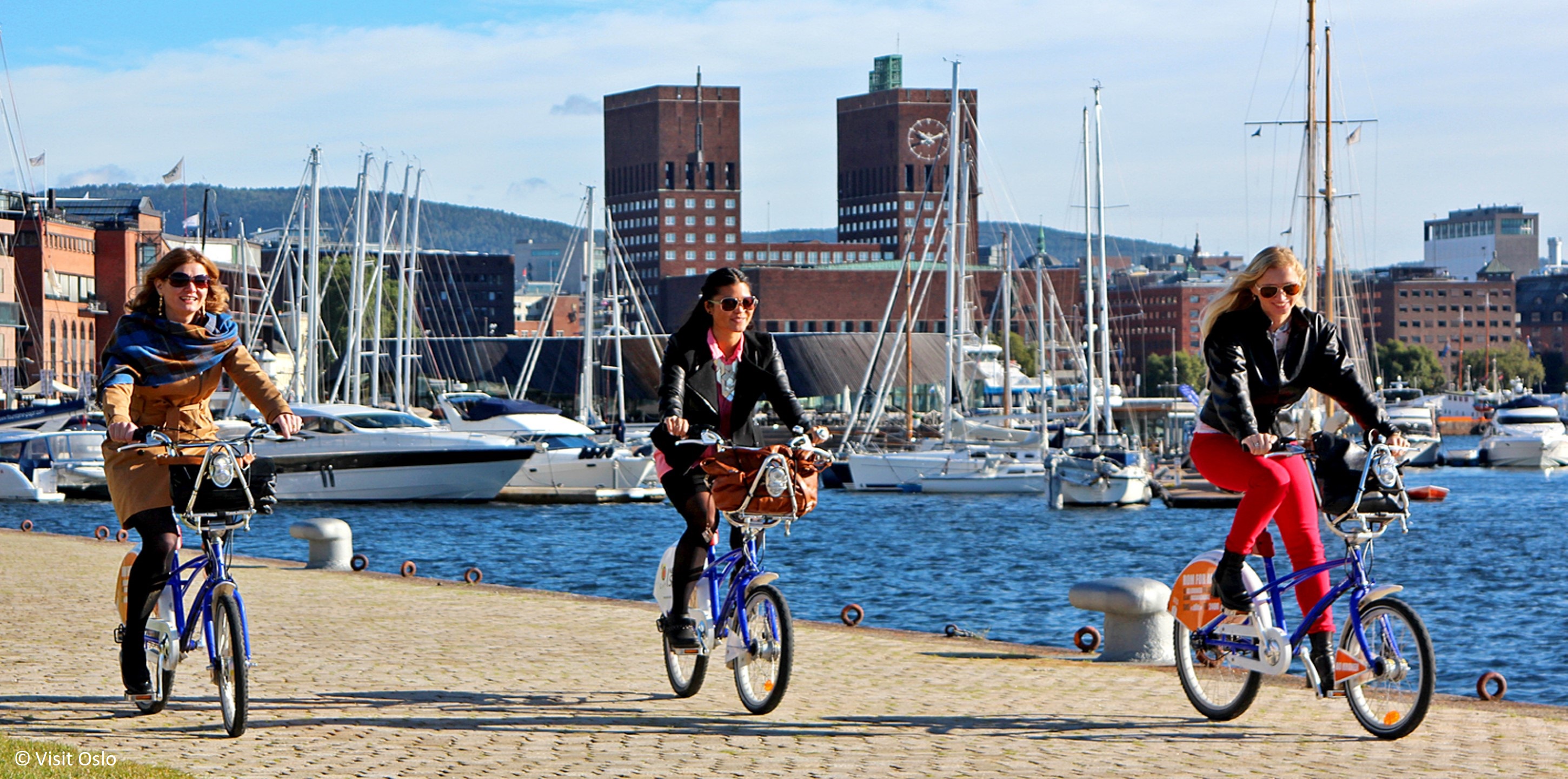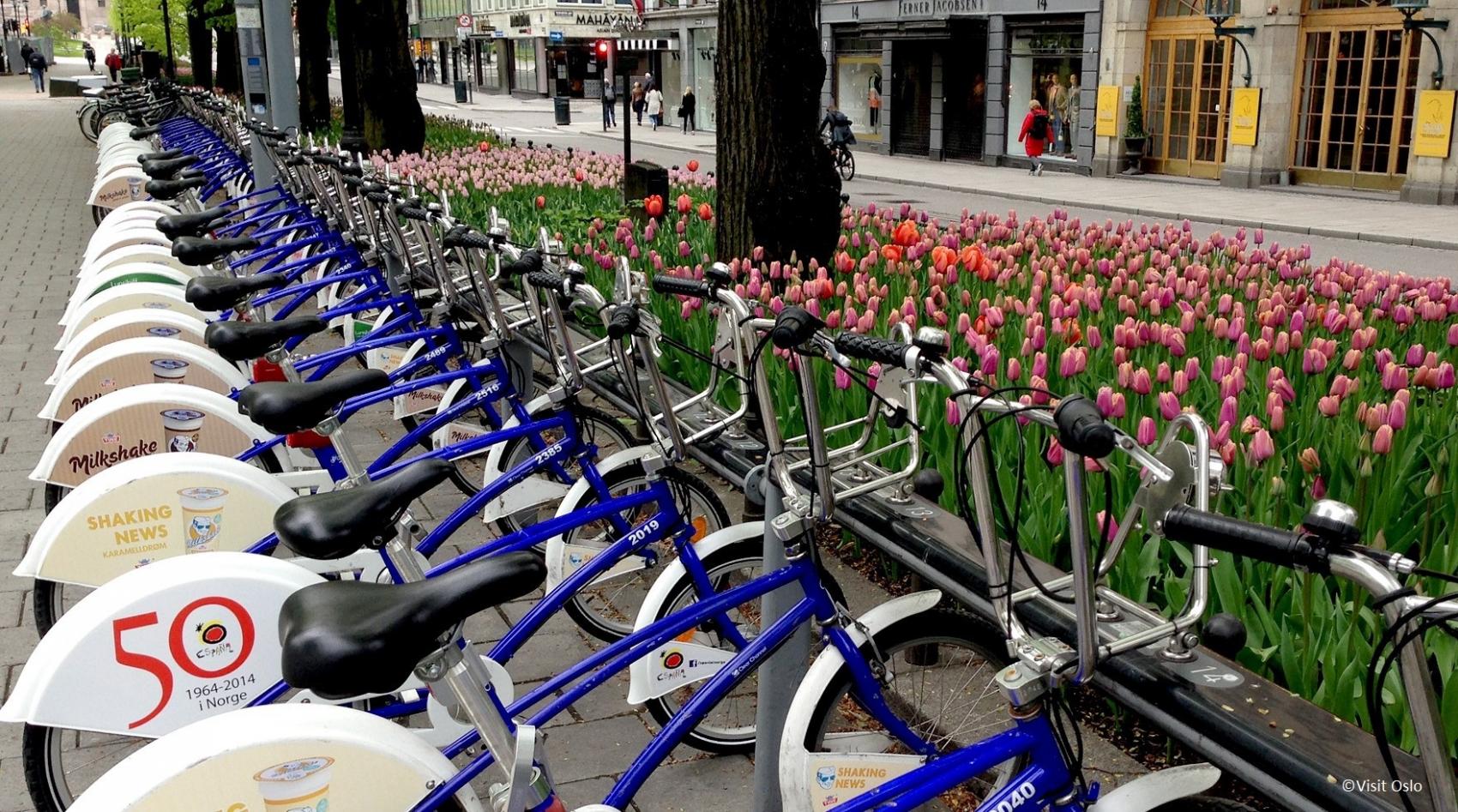
Why the positive buzz and darling status of Oslo as a bicycle-city?
This article was written by Roar Løkken, Communications Manager at Syklistene.
As you take the time to explore the streets of Oslo on two wheels, its shortcomings as a bicycle friendly city quickly become apparent. The general impression is one of fragmented bicycle-paths, challenging intersections, mixed traffic and in places poor road maintenance. Despite this first impression, Oslo has managed to acquire a status as an urban bicycle darling, both at home and abroad. Not without reason.
Until just recently Oslo was perceived as a laggard city with regards to cycling. The existing city plan for a bicycle network lay unrealized in a drawer for nearly two decades, effectively since its inception in the late 1990s. Eventually, the reality of the externalities caused by a transport network centered on fossil fuel vehicles became evident with regards to pollution and traffic in the Oslo area.
 A bicycle friendly city is not accomplished overnight. However, immediately following the establishment of an entire Bicycle Project for Oslo, and ratification of a Bicycle Strategy for the city, change has happened at an ever-increasing pace with an “Oslo-Standard” for bicycle facilitation and a new plan for a citywide bicycle-network. Parallel to the political pull in Oslo, a multiparty agreement at the national level on ambitious targets for cycling has been reached. The new political platform at the national level boasts a 20 percent target rate of cyclists in urban areas.
A bicycle friendly city is not accomplished overnight. However, immediately following the establishment of an entire Bicycle Project for Oslo, and ratification of a Bicycle Strategy for the city, change has happened at an ever-increasing pace with an “Oslo-Standard” for bicycle facilitation and a new plan for a citywide bicycle-network. Parallel to the political pull in Oslo, a multiparty agreement at the national level on ambitious targets for cycling has been reached. The new political platform at the national level boasts a 20 percent target rate of cyclists in urban areas.
It's a societal issue, not a political one
However, the political parties vary in their will to prioritize the ambitious goals for cycling when the time comes for budgetary commitments. Regardless of sector, results rely upon the will to act by politicians. Today, this will to act entails making unpopular decisions – in a public debate rife with tension. Politicians in the City Government of Oslo are well acquainted with the strain of negative sentiments, even with most of the population in support of the political platform. A public opinion survey conducted by Opinion in 2018 revealed an 85 percent support base for the municipal efforts to improve conditions for cycling.
Our role at SLF as the joint voice of our members is to be impatient. We desire swift facilitation of safe cycling networks for all people, regardless of gender or age. We see that the cycle infrastructure in Oslo today is not inclusive for all population demographics.
What do the G7 of cycling think?
Simultaneously, we see an impatient City Government which has opted for a stepwise plan to improve the infrastructure, instead of waiting for grants and plans that may enable the highest standard in the future. Step one, a tenfold yearly increase in bicycle infrastructure, is already being implemented.
Norwegian Cyclists’ Association (SLF) recently had the pleasure of hosting some the top 6 cycling organizations from Europe: the Danish Cyclists' Federation, both the Dutch and the Belgian Fietsersbond, the German ADFC, the Italian FIAB, and the Swiss Pro Velo. After a bicycle trip on the streets of Oslo, we challenged them to share their reflections on what they experienced as good and not so good while cycling in the city. We have previously touched upon the negative. So, to the positive: Oslo has clear and strong political leadership with ambitious goals for restructuring the transportation system. Burkhard Stork from the German ADFC sums up the impressions well:
Oslo is not the most cyclist friendly city in the world, but the most ambitious.
The Danish Bicycle Embassy’s decision to bestow the “Leadership award for cycling promotion” to Oslo City, and our decision at SLF to award City Council woman Lan Marie Nguyen Berg the award “Sykkelprisen” (a biannual tribute given to a person or organization in recognition of inspirational efforts to front the cause of SLF and cycling in general), were both well founded.
To return to the title question: the positive buzz about Oslo and urban cycling has arisen from the great political will and leadership in the City Council, making Oslo a beacon for Norway on cycling related urban policy. Results of the political will to change the city are revealed on the streets of Oslo with increasing velocity, causing joy for a vast number of its inhabitants.
Regions:
News category:
Contact the author
Recent news!
Upcoming events
Contact Us
Avenue des Arts, 7-8
Postal address: Rue de la Charité, 22
1210 Brussels, Belgium









